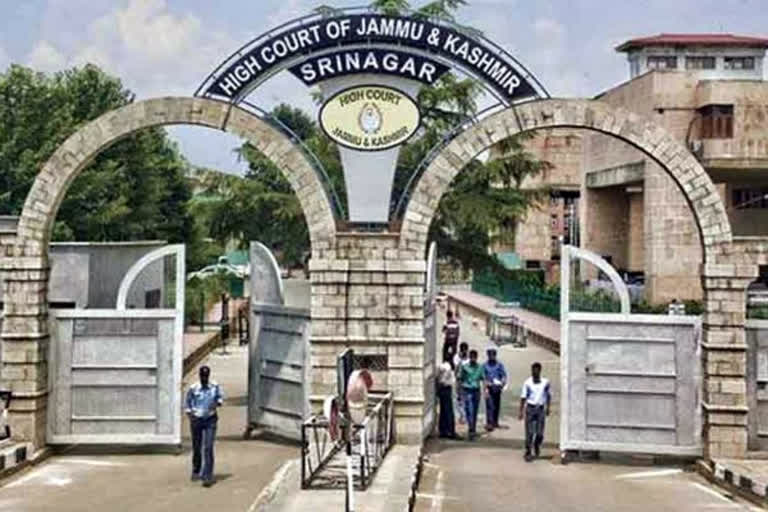Srinagar: The High Court of J&K and Ladakh has sought a report from the J&K administration regarding the status of seven wetlands recognized to be declared Ramsar Sites in J&K and Ladakh.
A division bench of Chief Justice Pankaj Mithal and Justice Puneet Gupta said: “To focus first on the wetlands of the Ramsar sites, we require the J&K government to come clean about their status and to file a complete report regarding all these sites within six weeks."
Hearing on its own motion a Public Interest Litigation (PIL), the bench said that Assistant Solicitor General of India (ASGI) T M Shamsi, who represents the Secretary, Ministry of Environment, Forest and Climate Change should also submit an Action Taken Report (ATR) in connection with the wetlands.
The directions came after lawyer Nadeem Qadri who assists the court as “amicus curiae” said three more wetlands of J&K and Ladakh had been recently recognized to be of international importance and declared Ramsar sites under the Ramsar Convention on Wetlands. Initially, four wetlands of J&K and Ladakh were recognized of international importance and declared as Ramsar sites under the Ramsar Convention on Wetlands.
Also read: J&K HC reopens Nadimarg massacre case involving deaths of 24 Kashmiri Pandits in 2003
The court said that “there are now seven wetlands covered under the Ramsar Convention on Wetlands and include Hokersar, Wular Lake, Shalbugh and Haigam in Kashmir valley, Tso Moriri and Tso Kar in Ladakh, and Surinsar-Mansar lakes in Jammu”. The High Court had treated an affidavit filed by the petitioner M K Balakrishnan before the apex court regarding certain wetlands which were covered under the Ramsar Convention on Wetlands as Public Interest Litigation.
The apex court had asked the chief justices of the concerned High Courts to treat the affidavit as a suo moto PIL and, if necessary, appoint amicus curiae to assist the court to ensure that the Ramsar Convention sites within their jurisdiction were properly maintained.
The High Court of J&K under the directions registered the affidavit as PIL on its own motion and in its first order on the PIL on August 28, 2018, underlined that the “importance of preservation of wetlands and water bodies cannot be sufficiently emphasized as well as the need to set up a regulatory mechanism for all wetlands to maintain their ecological character and ultimately support their integrated management in the three regions (Kashmir, Jammu, and Ladakh) of the then state Jammu and Kashmir.”



